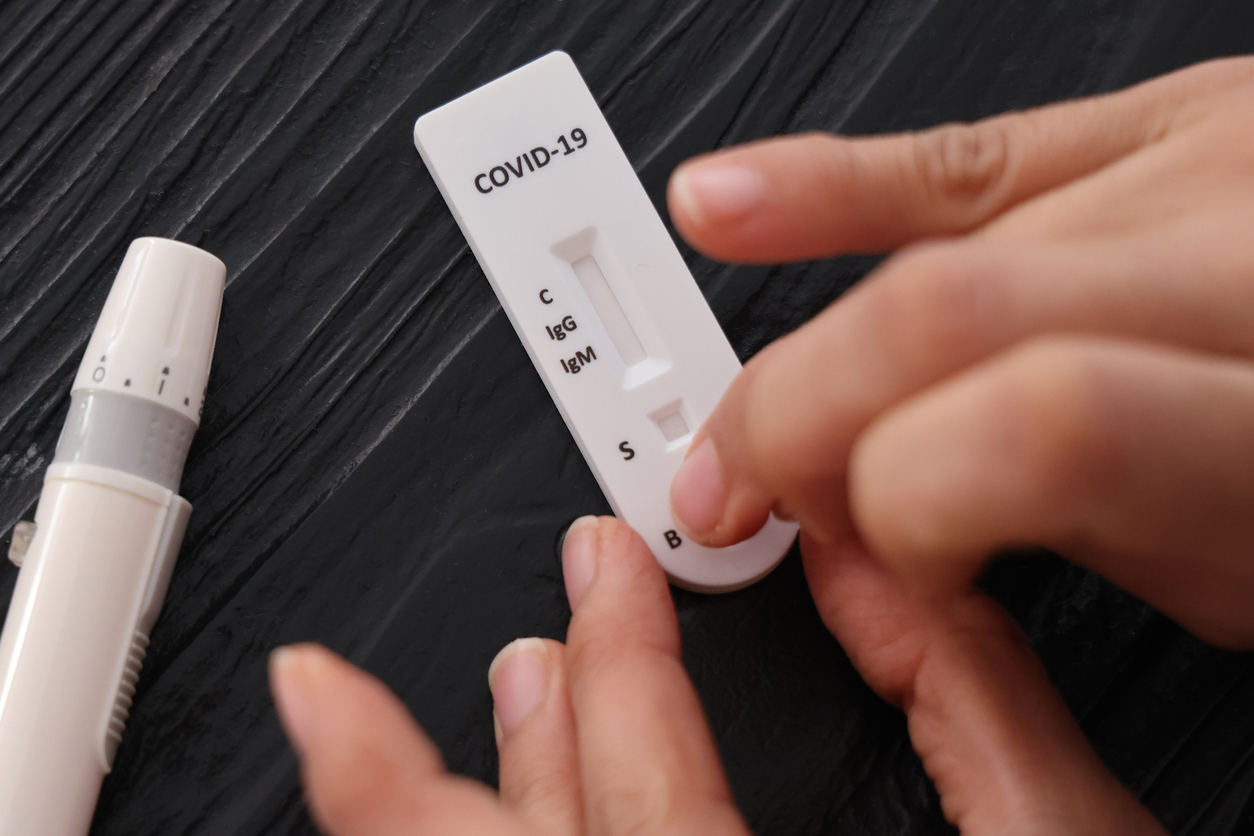Patients and staff at GP clinics in the Mid-West during June and July 2020 were over six times more likely to have antibodies to Covid-19 as the public at the time, according to a new University of Limerick study. Research published last month in the British Journal of General Practice Open shows that more than one-in-10 staff and patients had detectable antibodies to Covid-19.
A total of 971 patients and staff from 15 general practice clinics in the University of Limerick U-LEARN GP network across the Mid-West participated in the study. Each participant answered a series of questions about previous Covid-19 symptoms and testing and then gave a blood sample, which was immediately tested in the clinic using point-of-care bedside tests designed to detect antibodies to the SARS-CoV-2 virus.
The study found that 12.6 per cent of patients attending the general practices at that time and 11.1 per cent of staff working in general practice had detectable antibodies to SARS-CoV-2, meaning they had likely been infected with the virus previously. Practice nurses had the highest rates of previous exposure to Covid-19, with 17.6 per cent of nurses having detectable antibodies. At the time in Ireland, it was estimated that 1.7 per cent of the population had antibodies to SARS-CoV-2.
According to the study’s lead author, Dr Mike O’Callaghan, GP and researcher at University of Limerick School of Medicine: “This study shows how research in general practice can move quickly to answer important questions. While our findings relate to the first wave of Covid-19, our study clearly paints a picture of how this virus quickly got an early foothold in healthcare settings.
“We have demonstrated how point-of-care antibody tests can be used in general practice to gather information about the immune system response to this virus over time. This may be important in the future, as many questions remain about immunity in general and whether or not previous infection and/or vaccination will be likely to protect people in the longer term.”
University of Limerick Professor of Statistics, Prof Cathal Walsh, who was also involved in the study, noted: “This is an important study which shows that you can combine information from antibody tests with other information, such as that from polymerase-chain-reaction (PCR) tests, to help build up a picture of how our immune systems react to this virus.
“While the 33 participants with previously polymerase-chain-reaction (PCR) confirmed Covid-19 might be expected to have antibodies to SARS-Cov-2, our study also detected antibodies in an additional 60 people who had not previously had a PCR-confirmed infection.
“This is partly due to the fact that PCR testing systems took some time to be set up early in the pandemic, but also due to the fact that a quarter of the participants who had antibodies were asymptomatic in the months leading up to the study.”
Prof Liam Glynn, Professor of General Practice at UL, noted the value of the research at the coalface of primary care in Ireland. “Our findings highlight the importance of infection control measures and personal protective equipment and will help us learn lessons about how we must react to such threats in the future.
“Vaccination of frontline healthcare workers in GP clinics was slow in certain areas and our study confirms that healthcare providers and patients with high healthcare needs that attend them regularly need to be protected as soon as possible in an infectious disease outbreak.
“This study also offers important insights into how use of rapid point-of-care tests for antibodies may have a role in our response to this ongoing public health crisis. There has been a lot of focus on rapid antigen tests recently, which focus on infectiousness rather than immunity, and we need to understand more about both of these types of tests before we know how they might practically help our efforts.
“If there is a wider application for antibody testing, general practice is a good place to gather information on what is happening in our communities,” Prof Glynn concluded.







